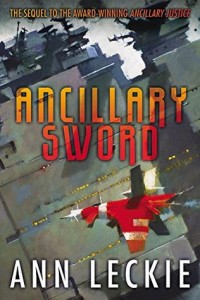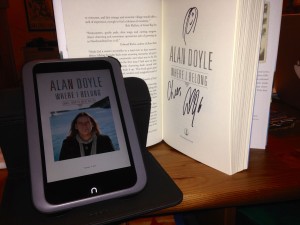 La Rivière des morts by Esther Rochon
La Rivière des morts by Esther Rochon
My rating: 2 of 5 stars
It’s tough for me to review this novel properly. My French isn’t good enough yet to have truly understood the majority of what I read here–and it didn’t help either that certain aspects of Mme. Rochon’s style here made it difficult for me to follow the action.
One, I did at least figure out that the book’s divided into a section involving protagonist Laura Fraser as a young girl, and a section involving her as an older woman (post-menopausal? Again, my French isn’t that solid yet, so I wasn’t able to nail that down for sure). It baffled me that the book changed tenses between these two sections, from first person in the earlier part to third in the latter. That was a baffling decision, one beyond my meager French to properly understand; it may well have made much more sense to Quebecois SF/F readers, I don’t know.
Two, in both sections, there was a certain distinct detachment to the action. In the first part, Laura tells the reader a lot of her history, along the lines of “this happened to me” and “I felt such-and-such a way”, with very little of what was going on actually played out directly. The same held true in the second part, although at least there, there were a few more scenes of direct interaction between Laura and other characters, notably Valtar and Sirwala. This made it a lot harder for me to feel engaged by any of the characters.
Three, instead of getting much in the way of action and character dialogue played out directly, we get a lot of lengthy paragraphs of Laura being introspective about assorted things that trouble her as a girl (mostly “the French speakers think I’m weird because I have an English name, and the English speakers think I’m weird because I speak with a French accent, and I HATE ALL OF THEM and I’m going to go dream about being a spider now”), and later, assorted things that trouble her as an adult. Later, when she does actually have direct interaction with other characters (mostly Valtar), each paragraph of dialogue is likewise very long. On the one hand, I regret that my French was not up to the task of following much of this, because I’m certain I’d have engaged with Laura as a character much more if I could actually understand most of what the text was saying. On the other hand, even as an Anglophone reader who’s barely able to dip her toes into Quebecois SF/F so far, I kept feeling like the lengthy, expository nature of the dialogue was forced. I’d be really curious to know if it reads that way to Quebecois readers as well, or if this is just a matter of my being a beginner at French.
So far, the one other Quebecois SF/F novel I’ve successfully read was significantly different stylistically, and targeted for younger readers as well–so it was much easier for me to follow. This one, I’ll straight-up admit, was a hard slog. So for now I’m going to have to give it two stars. But I’ll want to try it again later, as my French improves, and see whether my reading experience is different.




